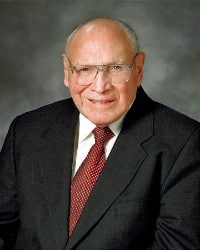
“Fast offerings are used for one purpose only: to bless the lives of those in need. Every dollar given to the bishop as a fast offering goes to assist the poor. When donations exceed local needs, they are passed along to fulfill the needs elsewhere.
“As an Apostle of the Lord Jesus Christ, I have traveled the world testifying of Him. I come before you today to bear another witness – a witness to the suffering and need of millions of our Heavenly Father’s children. Far too many in the world today – thousands upon thousands of families – experience want each day. They hunger. They ache with cold. They suffer from sickness. They grieve for their children. They mourn for the safety of their families. These people are not strangers and foreigners but children of our Heavenly Father. They are our brothers and our sisters. They are “fellow citizens with the saints, and of the household of God.” Their fervent prayers ascend to heaven pleading for respite, for relief from suffering. At this very hour on this very day, some members even in our Church are praying for the miracle that would allow them to surmount the suffering that surrounds them. If, while we have the means to do so, we do not have compassion for them and spring to their aid, we are in danger of being among those the prophet Moroni spoke of when he said, “Behold, ye do love money, and your substance, and your fine apparel . . . more than ye love the poor and the needy, the sick and the afflicted.”
| “The Law of the Fast,” Ensign, May 2001, p. 73